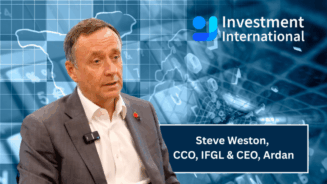Securing permanent residency in the United Arab Emirates has historically not really been possible for expats, but that changed with the introduction of the so-called golden visa.
On 21 May 2019, after many months of preparation, Sheikh Mohammed bin Rashid publicly announced a system “to grant permanent residency to investors and exceptional doctors, engineers, scientists and artists”.
His tweet added that 6,800 individuals, who have collectively made around AED100bn (£21.6bn, $27.2bn, €24.1bn) worth of investments, “will be granted the ‘Golden Card’”.
What is on offer?
The scheme is open to four groups: investors; entrepreneurs; special talents & researchers in scientific and knowledge fields; and high calibre & outstanding students.
For the investor group, they need to put AED10m in a fund or AED5m in real estate.
By meeting additional requirements, which range from having financial liabilities below AED10m to ensuring their family has medical insurance, a 10-year visa is granted that will renew every decade.
This, however, is contingent on the individual continuing to satisfy the terms and conditions under which they were granted the visa.
Real estate investors are granted five-year residency.
Queuing up?
Those seeking the 10-year visas are from around 70 countries, with between 30 and 40 individuals per day receiving their visas.
Their spouse and children also receive a golden card.
But, taking a look at the local media coverage, there is a distinct trend emerging – at least so far.
A significant proportion of the recipients appear to be non-resident Indians/Pakistanis/Bangladeshis.
One of the reasons for this could be that the golden visa scheme may not be as attractive to westerners.
Helpful in retirement
“I don’t think it is necessarily aimed at European expats, who tend to view Dubai more as a short-term destination. Although I’m sure some will apply,” one source, who declined to be named, told International Adviser.
Some will perhaps be thinking about the tax benefits, he added. “But most could just live here six/seven months a year and get the tax angle anyway.”
And it isn’t that the visas are specifically targeted at NRIs, “I just think that’s where most of the interest is going to come from”.
He suggested, however, that it could help western expats over the age of 60 who want to retire in the UAE.
“It is extremely difficult, especially in the oil and gas industry, for anyone to get a job over the age of 60. And renewing a visa without a job is tough. Having the golden card could take care of that.”
That being said, however: “I haven’t heard any expats talking about it,” he added.
Shorter horizon
AES International chief executive Sam Instone agrees that there will likely be limited interest from western expats.
Having lived in Dubai for many years and expecting to spend at least another for 20 there, the visa renewal process Instone already goes through “is pretty easy”, he told IA.
His company also deals mostly with Brits, who have more of a tendency to bounce around the world. “They travel from Singapore, to Hong Kong, to Belgium, then to the UAE.”
As such, he doesn’t expect that many will be seeking long-term residency in the UAE.
“It depends on your source nationality and upon your life stage,” he added.
“When someone no longer has a job and they want to continue living in Dubai, it will become more relevant.”
NRI allure
Expats account for over 88% of the population of the UAE, with Indians representing over 27% and Pakistanis nearly 13%.
By sheer volume of numbers, this explains why would be mostly NRIs/NRPs receiving the golden visas.
So, what is the incentive?
It’s not that renewing their visas are particularly onerous, as Ashok Sardana, founder and managing director of Continental Insurance Brokers, explained to IA: “The local government has always made the process of renewing visas as simple as the click of a button.”
The true motivator seems to be security.
“The impact this new 10-year visas has is that it reinforces the country’s commitment to the expat community, making sure they’re happy to call the UAE their home and allowing them to feel secure about their tomorrow,” Sardana said.




